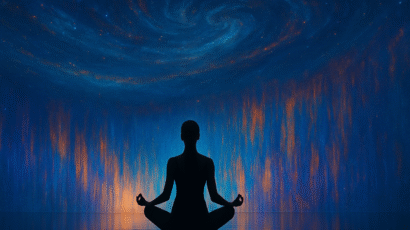By following Advaita Vedanta, You can be free from Stress

Advaita Vedanta is a school of Hindu philosophy and religious practice, and one of the classic Indian philosophical paths to achieve spiritual realization and liberation through Dyana. Even though it is believed to have developed in the 8th or 7th century BCE, it is relevant in this contemporary world too, as the crux of this principle is so liberating that it would be helpful to get rid of anxiety, stress and other unfavorable conditions. In fact, the older it gets, the more it becomes useful like an old wine.
As an ancient Indian monotheistic practice, it proclaims that absolute is the only truth and the Universe is a delusion. It elaborates that our soul is not a separate entity; contrarily, it is a part of supreme soul or Brahma. That means human being and the Universe are not separate but the same. Once this thought settles in you, ego will naturally dissolve and you can be free as birds, flowers, mountains, or anything those can be found in this Universe. In Bhagavad Gita and Katoupanishad, it is said that you neither are born nor die. It means you as a thought do not exist. You are as a wave in this ocean of life. In Upanishads, there is a Sanskrit phrase ‘Tat Tvam Asi’, translated as ‘You are that’ or ‘That you are’; ‘Aham Brahmas mi’ or ‘I am Divine’.
All these proclamations lead you to a state of selflessness or egoless state and eventually it creates affinity towards others. Shankaracharya and Gaudapadacharya were the two well-known exponents of Advaita Vedanta, while Gaudapadacharya’s biographical details are uncertain; Shankaracharya lived in the eighth century in India.















